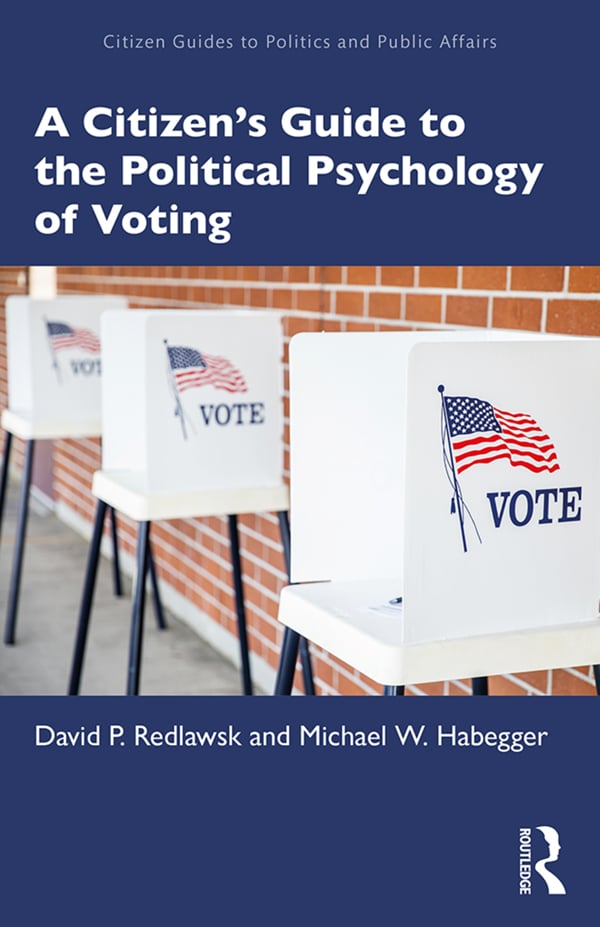A Citizenâs Guide to the Political Psychology of Voting
by David P. Redlawsk
2020-05-07 00:35:40
A Citizenâs Guide to the Political Psychology of Voting
by David P. Redlawsk
2020-05-07 00:35:40
In the run-up to a contentious 2020 presidential election, the much-maligned American voter may indeed be wondering, “How did we get here?” A Citizen’s Guide to the Political Psychology of Voting offers a way of thinking about how voters make d...
Read more
In the run-up to a contentious 2020 presidential election, the much-maligned American voter may indeed be wondering, “How did we get here?” A Citizen’s Guide to the Political Psychology of Voting offers a way of thinking about how voters make decisions that provides both hope and concern. In many ways, voters may be able to effectively process vast amounts of information in order to decide which candidates to vote for in concert with their ideas, values, and priorities. But human limitations in information processing must give us pause. While we all might think we want to be rational information processors, political psychologists recognize that most of the time we do not have the time or the motivation to do so. The question is, can voters do a “good enough” job even if they fail to account for everything during the campaign? Evidence suggests that they can, but it isn’t easy. Here, Redlawsk and Habegger portray a wide variety of voter styles and approaches—from the most motivated and engaged to the farthest removed and disenchanted—in vignettes that connect the long tradition of voter survey research to real life voting challenges. They explore how voters search for political information and make use of it in evaluating candidates and their positions. Ultimately, they find that American voters are reasonably competent in making well-enough informed vote choices efficiently and responsibly. For citizen voters as well as students and scholars, these results should encourage regular turnout for elections now and in the future.
Less





.jpg)
























